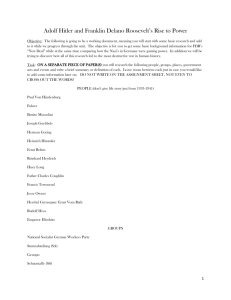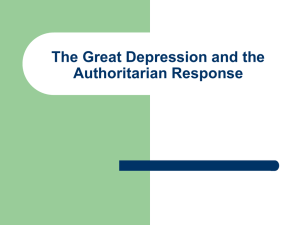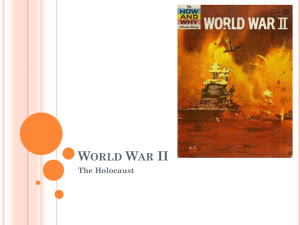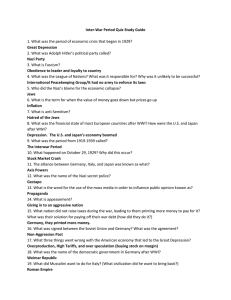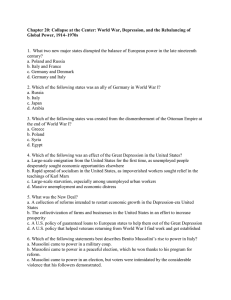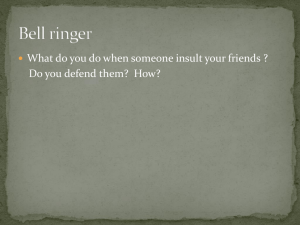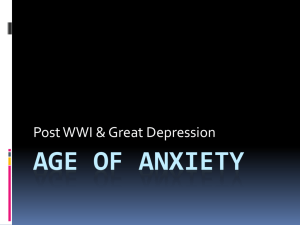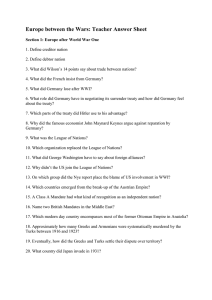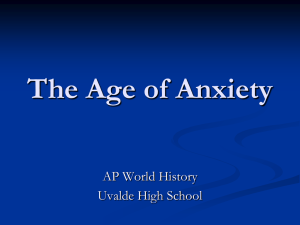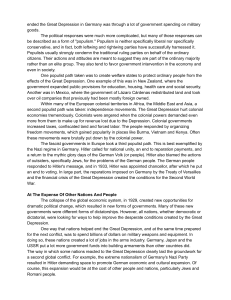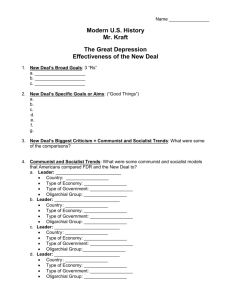CHAPTER 9 VOCABULARY
advertisement
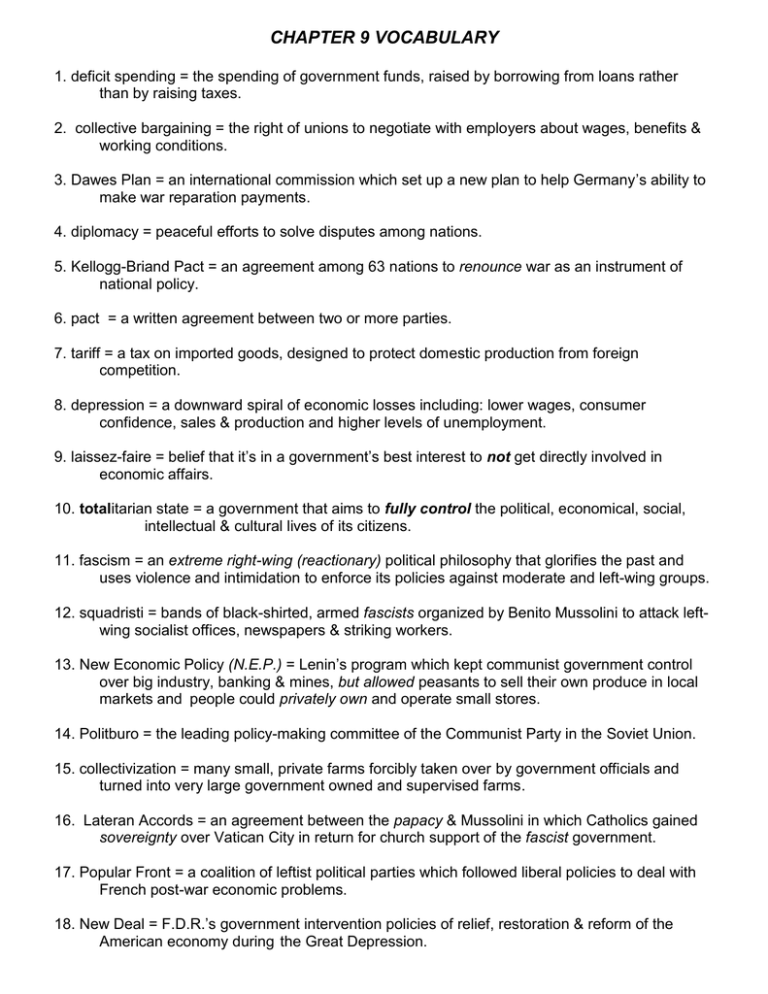
CHAPTER 9 VOCABULARY 1. deficit spending = the spending of government funds, raised by borrowing from loans rather than by raising taxes. 2. collective bargaining = the right of unions to negotiate with employers about wages, benefits & working conditions. 3. Dawes Plan = an international commission which set up a new plan to help Germany’s ability to make war reparation payments. 4. diplomacy = peaceful efforts to solve disputes among nations. 5. Kellogg-Briand Pact = an agreement among 63 nations to renounce war as an instrument of national policy. 6. pact = a written agreement between two or more parties. 7. tariff = a tax on imported goods, designed to protect domestic production from foreign competition. 8. depression = a downward spiral of economic losses including: lower wages, consumer confidence, sales & production and higher levels of unemployment. 9. laissez-faire = belief that it’s in a government’s best interest to not get directly involved in economic affairs. 10. totalitarian state = a government that aims to fully control the political, economical, social, intellectual & cultural lives of its citizens. 11. fascism = an extreme right-wing (reactionary) political philosophy that glorifies the past and uses violence and intimidation to enforce its policies against moderate and left-wing groups. 12. squadristi = bands of black-shirted, armed fascists organized by Benito Mussolini to attack leftwing socialist offices, newspapers & striking workers. 13. New Economic Policy (N.E.P.) = Lenin’s program which kept communist government control over big industry, banking & mines, but allowed peasants to sell their own produce in local markets and people could privately own and operate small stores. 14. Politburo = the leading policy-making committee of the Communist Party in the Soviet Union. 15. collectivization = many small, private farms forcibly taken over by government officials and turned into very large government owned and supervised farms. 16. Lateran Accords = an agreement between the papacy & Mussolini in which Catholics gained sovereignty over Vatican City in return for church support of the fascist government. 17. Popular Front = a coalition of leftist political parties which followed liberal policies to deal with French post-war economic problems. 18. New Deal = F.D.R.’s government intervention policies of relief, restoration & reform of the American economy during the Great Depression. 19. Spanish Civil War = the conflict between the Republican government and its Soviet allies against Franco’s fascists and their Nazi allies. 20. Aryans = mythological “superior race” of Germanic people in Northern Europe & Scandinavia. 21. charisma = a personality which has a strong emotional & psychological influence on people. 22. genocide = the mass murder of an entire group of people due to their race, religion or nationality. 23. anti-Semitism = hostility toward or discrimination against Jewish people. 24. Kristallnacht = evenings in November, 1938 in which German mobs attacked Jewish people, homes, businesses & synagogues with support from the Nazi government. 25. orator = one who is skilled in giving inspirational public speeches. 26. Lebensraum = geographic “living room” in the heartland of Eurasia claimed by expansionist Germany. 27. Reichstag = the law-making body of German government officials and the building in which they meet.. 28. Weimar Republic = the German democratic state that struggled after World War I due to the terms of the Treaty of Versailles & the effects of economic depression. 29. avant-garde = a group of intellectuals who develop new or experimental concepts in the arts. 30. surrealism = a type of art made popular by Salvador Dali which sought a “greater reality” that existed beyond the world of physical appearances.
